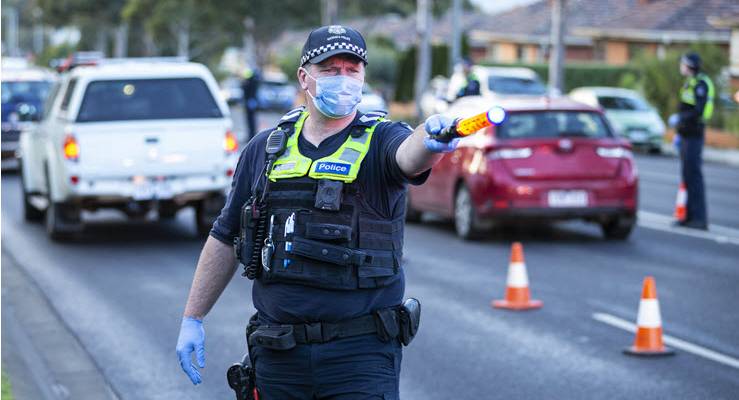
All the latest on Melbourne’s localised lockdowns and the source of the Victorian surge. America might have had more deaths than we thought, as Trump hordes drug supplies. And could Australia shake up the race to create a COVID-19 vaccine?
Lockdown watch
As 36 Melbourne suburbs return to stage three restrictions today, Victorians are scrambling to get their licences amended to change addresses and avoid being confined to one of the hotspots.
The localised lockdown, which comes as Victoria saw a record and sustained increase in community transmission, will be tough for communities and businesses who’d just started to glimpse the light at the end of the tunnel.
Victorian officials this morning confirmed another day of double-digit cases, with 77 recorded since yesterday.
And there are already reports of Melbourne streets divided in two.
Meanwhile, the rest of the country is trying to keep Victorians out.
Queensland will reopen its border to everyone other than Victorians on July 10. Premier Annastacia Palaszczuk has made keeping Victorians out an election issue.
Western Australia and South Australia have changed their border reopening plans in light of the Melbourne spike.
And in NSW, Victorians from the hotspot suburbs who cross the border could risk a $11,000 fine or six months’ jail time.
And we’re now becoming more aware of the strategic missteps that led to Victoria’s spike in cases.
It wasn’t the Black Lives Matter protests, even though politicians and media pundits have managed to convince a chunk of the population that they were responsible.
Most of the cases were linked to outbreaks at two quarantine hotels. Unlike other states, which used the police, Victoria retained private security contractors to run its quarantine program. Guards reportedly broke infection protocols — shaking hands, sharing lighters, and according to one salacious rumour, sleeping with guests in lockdown.
America’s pandemic worse than we thought
New cases continue to surge in the United States, after several states inexplicably started to loosen restrictions.
So far, COVID-19 has killed more than 130,000 Americans. But the true number may be far higher, according to a new study by American and Danish scientists. It found that the number of deaths by any cause was 28% higher between March and May this year than it was during the same period last year.
Because many of these deaths happened before large-scale testing was available, or may have been recorded as caused by pneumonia or other respiratory issues, the researchers say it shows the death toll from COVID-19 is higher than the official numbers.
This also follows a pattern in places where the pandemic hit hard, of death counts being revised up due to counting issues. The United Kingdom had to concede its COVID-19 death toll was higher than thought in April, after people dying in care homes were excluded.
Wuhan revised its deaths up 50%.
Australian vaccine starts human trial
As we reported this week, there have been some positive news on the vaccine front in China, the UK and the US.
And Australia is now getting in on the act — a candidate developed by Adelaide-based company Vaxine is set to be the first in the southern hemisphere to begin human clinical trials.
The company began working to develop a vaccine back in February, and its current candidate uses a recombinant spike protein approach, similar to how scientists tackled SARS. Phase one of human trials will be conducted at Royal Adelaide Hospital, with 40 participants involved.
America hoards virus drug
The United States has hoarded almost the entire global supply of Remdesivir, a drug which has helped patients with COVID-19 recover quicker.
US President Donald Trump made a deal to buy 500,000 doses of the drug from company Gilead, nearly all of its supply for the next three months.
Remdesivir is the only drug licensed in the US and the EU to treat COVID-19.
The hoarding has health experts fearful, especially about what this means for a potential future vaccine. If the US behaves in a similar manner by buying up limited stocks, it could hinder global efforts to curb the pandemic.








Crikey is committed to hosting lively discussions. Help us keep the conversation useful, interesting and welcoming. We aim to publish comments quickly in the interest of promoting robust conversation, but we’re a small team and we deploy filters to protect against legal risk. Occasionally your comment may be held up while we review, but we’re working as fast as we can to keep the conversation rolling.
The Crikey comment section is members-only content. Please subscribe to leave a comment.
The Crikey comment section is members-only content. Please login to leave a comment.